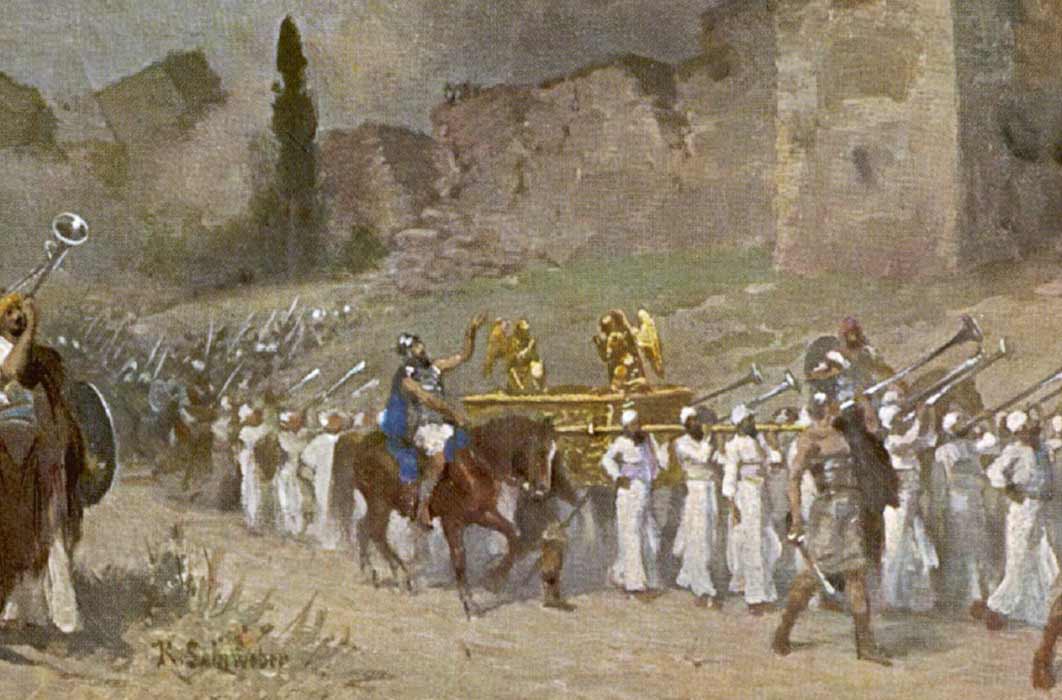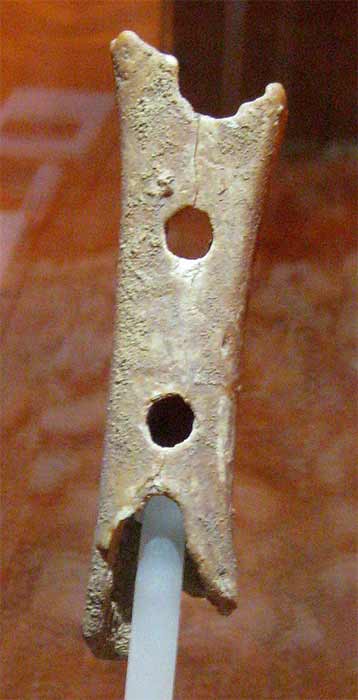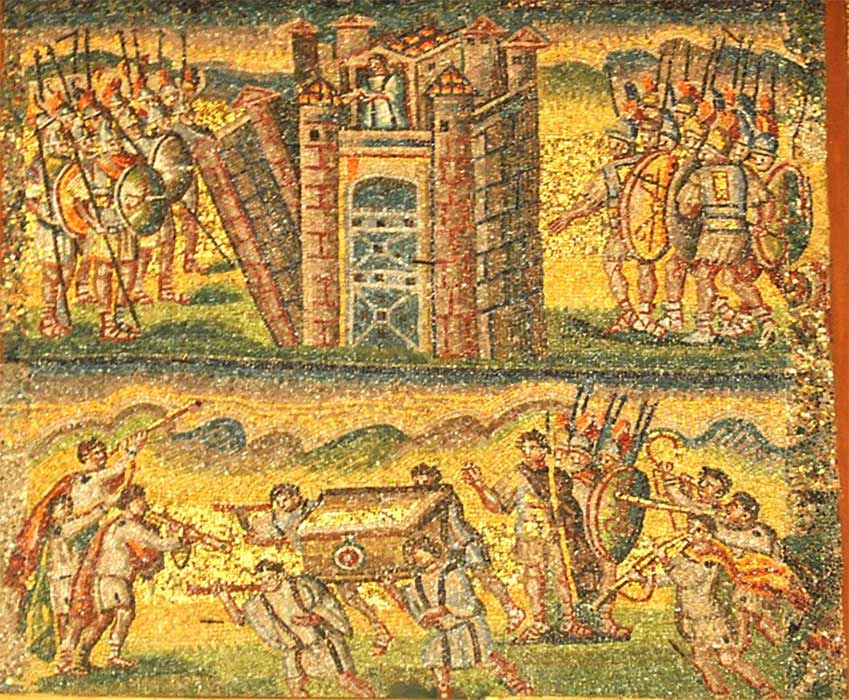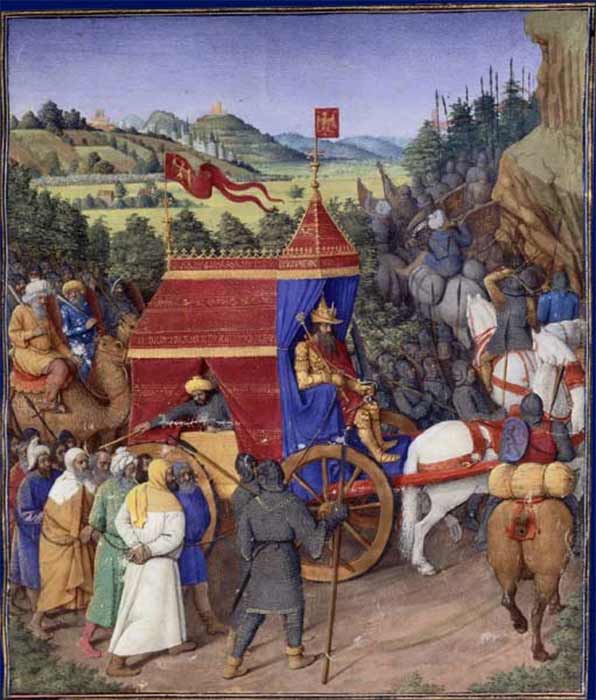
Beat The Drum, Sound The Bugle, Play The Bagpipe: Music In Warfare
Since prehistoric times when hunters tapped along to the rhythm of drips in caves and carved the first bone flutes and skin drums, music has always been an integral part of the hunt and warfare, where it serves a two-fold function. Not only was different music developed to communicate military commands and strategic frontline messages between distant battalions, but the rumble of drums and the ghostly chants of pipes also served as a very effective tool of psychological warfare.

The oldest musical instrument in the world is a 60,000-year-old Neanderthal hunter’s bone flute that was discovered in Divje babe cave near Cerkno. (Public Domain)
Biblical References To War Music
The earliest written accounts of war music are mostly mythological and allegorical. According to the 2000-book Conquest: Biblical narrative the oldest Biblical reference to music being used as a weapon appears in Joshua 6:1–27 recounting the Battle of Jericho. Here, during a major battle of the Israelites in their conquest of Canaan, at one the oldest fortified human sites of occupation known to archaeology, the good book says the walls of Jericho fell after the Israelites marched the Ark of the Covenant around the city walls, “once a day for six days and seven times on the seventh day, and then blew their trumpets.”

The Ark of the Covenant carried around the walls of Jericho to the sound of trumpets. (Fifth century) Scott Nevins Memorial. (Public Domain)
What kind of magical sound or vibration did the Ark of the Covenant and the trumpets create to collapse a city? According to writer Paul Jacob’s 2000-book Jericho, excavations at Tell es-Sultan, the biblical city of Jericho, have all failed to substantiate this musical story. The researcher is more of the belief that the story uses music as a literary device. The specific application of music used to conquer a city suited a “nationalist propaganda of much later kings of Judah and their claims to the territory of the Kingdom of Israel.” However, many climatologists believe the answer is much simpler still, and have suggested the sound of the rams’ horns was allegorical for the timely earthquake that shook the foundations of Jericho to pieces at that time. But if this dry geological solution for the rams’ horns event at Jericho is ever proved, to believers it would still be God who had sent that specific earthquake, no doubt.
Another instance of musical warfare in the Bible is recounted in 2 Chronicles 17:6 associated with King Jehoshaphat. When the ruler boldly led the people of Judah into the wilderness to face the armies of Ammon, Moab, and Mount Seir who had attacked Judah, Jehoshaphat commanded them “to trust God’s promise.” In Verse 20 he says: "Hear me, Judah and inhabitants of Jerusalem! Believe in the Lord your God, and you will be established; believe his prophets, and you will succeed.” So deep was Jehoshaphat’s faith that he stated the “battle was God’s to fight,” so much so that when he selected his frontline troops, he did not choose swordsmen, spearmen and charioteers, but rather, singers, armed only with their joint choir.

The Triumph of Jehoshaphat over Adad of Syria by Jean Fouquet (1470s) for Josephus' Antiquities of the Jews. (Public Domain)





